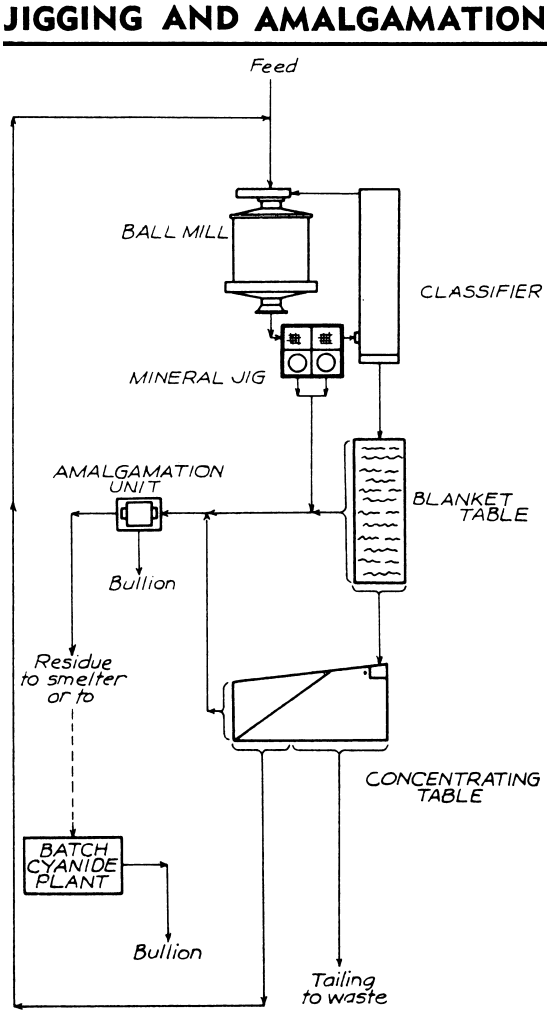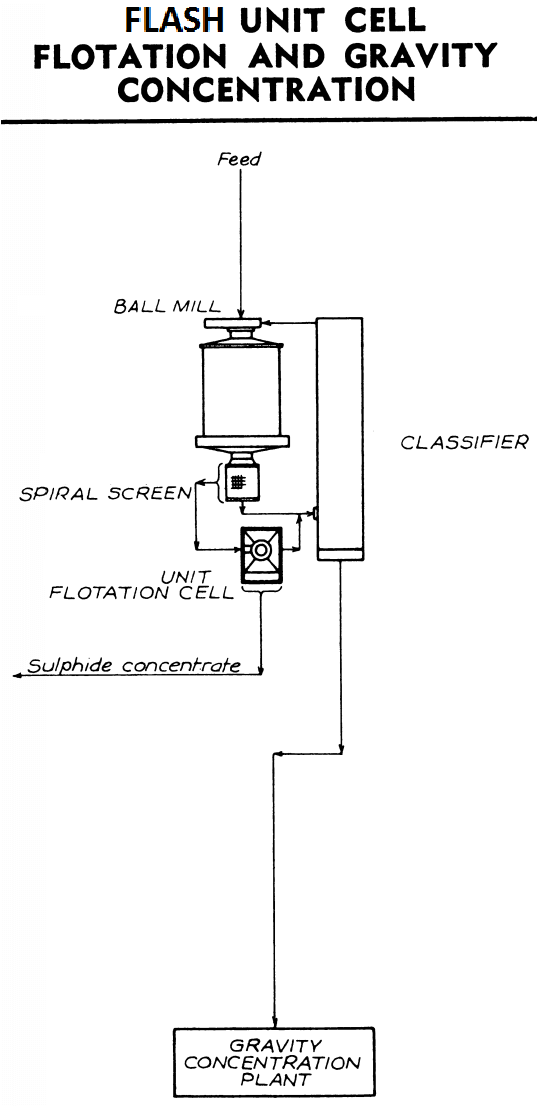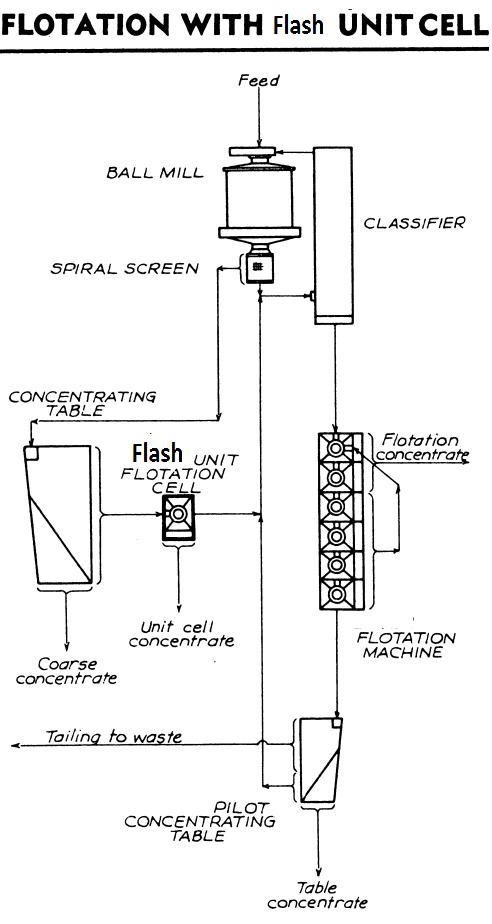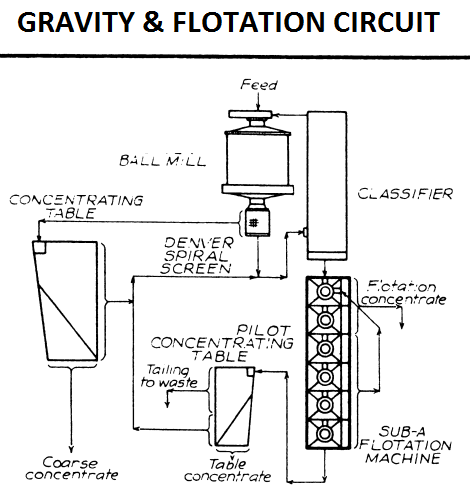Gold Recovery Jig, Shaking Table and Amalgamation Process

CIRCUIT PROCESS FLOWSHEET DESCRIPTION: Modern, inexpensive amalgamation circuit with the Mineral Jig as the major recovery unit. ORE TREATED: Practically any gold ore containing native or free gold. ADVANTAGES From sixty to ninety-five percent recovery can be made with this simple flowsheet on many ores, and the gold produced in bullion form. The Mineral Jig […]
Coarse Flotation with Gravity Gold Recovery Circuit

CIRCUIT PROCESS FLOWSHEET DESCRIPTION: A Flash Unit sulphide Flotation Cell followed by a gravity concentration plant. This flowsheet shows the use of the Unit Flotation Cell, to extract/recover bas metal sulphides, in the ball mill classifier circuit in a plant where subsequent treatment consists of the usual gravity concentration methods. ORE TREATED: The ores treated in […]
Recovery of Mercury from Amalgamation Tailing

In this paper on the recovery of mercury as sulphide, from the residues from the amalgamation and cyanide treatment of high-grade ores and concentrates, I will not discuss the many reactions, chemical and otherwise, that take place in the general process, but confine myself more particularly to the methods of recovering the mercury. I submit […]
Coarse Flash Flotation Circuit

DESCRIPTION: A Unit Flash Flotation Cell in coarse concentration flotation circuit. This flowsheet is similar to our Coarse gravity concentration followed by flotation circuit. ORE TREATED: This flowsheet can be used on ores wherein the base metal minerals are freed at a coarse size. This is often seen on Pb Lead/Galena flotation located on the ball mill […]
Amalgamation Of Gold Ores & Chloritizing Roasting

The following minerals could be plainly seen in the ore: magnetite, pyrites of iron, pyrites of copper, quartz, and garnet. Neither galena nor zinc-blende were visible, but the ore contained a trace of lead, and in some samples of ore from the Muertos mine, 1.19 per cent, of zinc was found. Antimony and arsenic were […]
Pan Amalgamation

These results obtained in experiments, proving that a low percentage of copper sulphate with a variable percentage of salt, depending on the ore, gives the best results, confirm practical mill-work. I have none of my notes, taken at the time, to refer to, so have to rely solely on memory, which precludes the conciseness that […]
Amalgamation Patio Process

The ores were composed principally of iron pyrites (much decomposed), in a quartz matrix, with native gold in very irregular grains. Some portions, however, carried their metallic value in a matrix of calcite and siderite. The mill in which the ores were treated consisted of two 800-lb. stamps, two amalgamating-plates, four pans, two automatic washers, […]
Coarse Ball Mill Grinding and Gold Flotation Circuit

DESCRIPTION: A flowsheet of Coarse gravity concentration followed by flotation circuit. ORE TREATED: On ores wherein base metals or gold bearing pyrite free at a coarse size. ADVANTAGES: This flowsheet illustrates the application of a concentrating table in the ball mill classifier circuit, followed by flotation of the classifier overflow at a finer mesh. Where […]
Flotation, Gravity and Tailings Cyanidation

DESCRIPTION: Flotation with cyanidation of flotation tailings. This flowsheet has a gravity gold recovery embedded into the grinding circuit’s ball mill discharge. ORE TREATED: Ores containing both oxide and sulphide minerals with gold or silver, or those with cyanicides which must he removed before cyanidation. ADVANTAGES: This flowsheet makes possible the milling in one plant […]
Flotation & Shaking Tables with Open Circuit Ball Mill

DESCRIPTION: Flotation followed by shaker table concentration in open circuit grinding. ORE TREATED: When the mineral in an ore is freed at a coarse mesh, this flowsheet gives high recovery and high capacity. The practice is limited in scope, as on ores requiring fine grinding, closed circuit is preferable, and on ores wherein the gold is free, amalgamation […]
